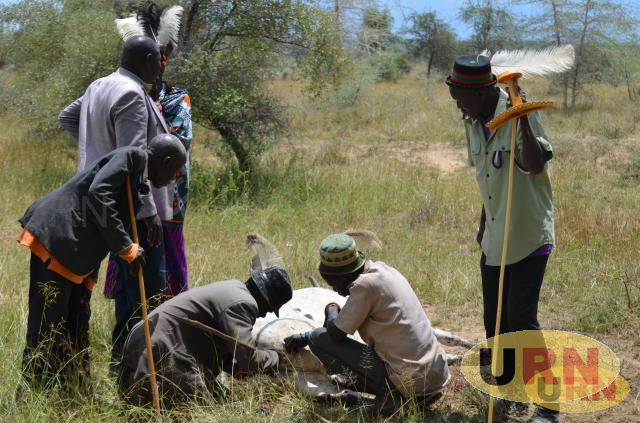Karamoja Women’s Umbrella Organization (KAWUO) has taken steps to address harmful cultural practices against girls and women in the Karamoja sub-region by involving the Elders in their programs. The Karimojong culture, which is traditionally male-dominated, restricts women from owning family assets such as land and property and participating fully in discussions before the Elders’ Council, among other restrictions. This culture has been associated with negative practices like Female Genital Mutilation and early and forced marriages.

KAWUO, through its She Leads project, has partnered with the Elders Council to increase the influence of girls and young women in decision-making processes and to challenge traditional gender norms within both formal and non-formal institutions. Thomas Odelok, the Executive Director of Karamoja Women’s Umbrella Organization, emphasized their commitment to engaging all stakeholders, including cultural leaders, to champion women’s rights and incorporate cultural aspects into their initiatives to combat violence against girls.
Odelok added that they are actively involved in community engagement and policy strengthening, focusing on women’s rights to achieve gender equality. So far, KAWUO has trained 150 girls aged between 13 and 25, 90 cultural leaders, and male champions aged 18 to 35 in Napak and Moroto districts. This training aimed to build relationships and collaborations with men and elders who play a crucial role in preserving cultural norms.
Odelok noted a positive change in attitude and perception among men as they embraced advocacy for women’s and girls’ rights. He urged the elders to support the fight against violations of girls’ and women’s rights. Loru Apaa Lowok, an Elders’ representative for Lotome Sub-county in Napak district, expressed their full commitment to promoting women’s participation in decision-making processes.
He acknowledged the cultural barriers that had previously prevented women from contributing to meetings and entering traditional shrines where elders held their council. Lowok highlighted the need to eliminate harmful cultural practices that oppress women and girls, noting that these practices have brought limited benefits to the community.
Lowok further explained that some practices were followed merely because they existed, and now is the time to assess cultural assets that hold value and abandon those that infringe upon women’s rights. Ceasar Akol, the Moroto district speaker, emphasized the necessity of collective efforts to break barriers related to negative cultural practices, creating a safer environment for girls and women.
He acknowledged that despite legislative efforts to criminalize practices like female genital mutilation, some communities, like the Tepeth, still engage in such practices. Akol stated that district leadership is committed to collaborating with partners to find solutions that dismantle these barriers. He also stressed the need for prevention and response strategies alongside existing laws and ordinances.
On September 27th, girls and young mothers took to the streets of Matany Town Council to share messages denouncing harmful cultural practices imposed upon them. Lucy Adiaka, a girl champion from Lotome Sub County in Napak district, criticized parents for considering girls as sources of wealth by exchanging them for cows. Adiaka shared her experience of narrowly escaping an arranged marriage proposal by a warrior and how the She Leads program saved her from early marriage, allowing her to continue her education.
Adiaka encouraged other girls to prioritize education over seeking survival in the streets. Emmanuel Lopeyok, the boy child champion in Moroto district, admitted his involvement in harmful practices that caused pain to young girls before joining the She Leads program. He recalled incidents where groups of boys engaged in forced marriages through abduction and rape, following traditional norms.
Lopeyok expressed remorse for his past actions, attributing his transformation to the training sessions provided by the She Leads program. Linda Ngelecha, the Girl Child Advocate at the She Leads project, highlighted the oppression faced by girls growing up in Karamoja due to harmful cultural practices. Ngelecha stressed the importance of elders’ collaboration with the community to address these practices and promote positive gender norms. Ngelecha noted the increasing recognition of women’s importance in decision-making processes, marking progress toward gender equality as men begin to realize the value of women’s involvement.
By Godfrey Eyoku






